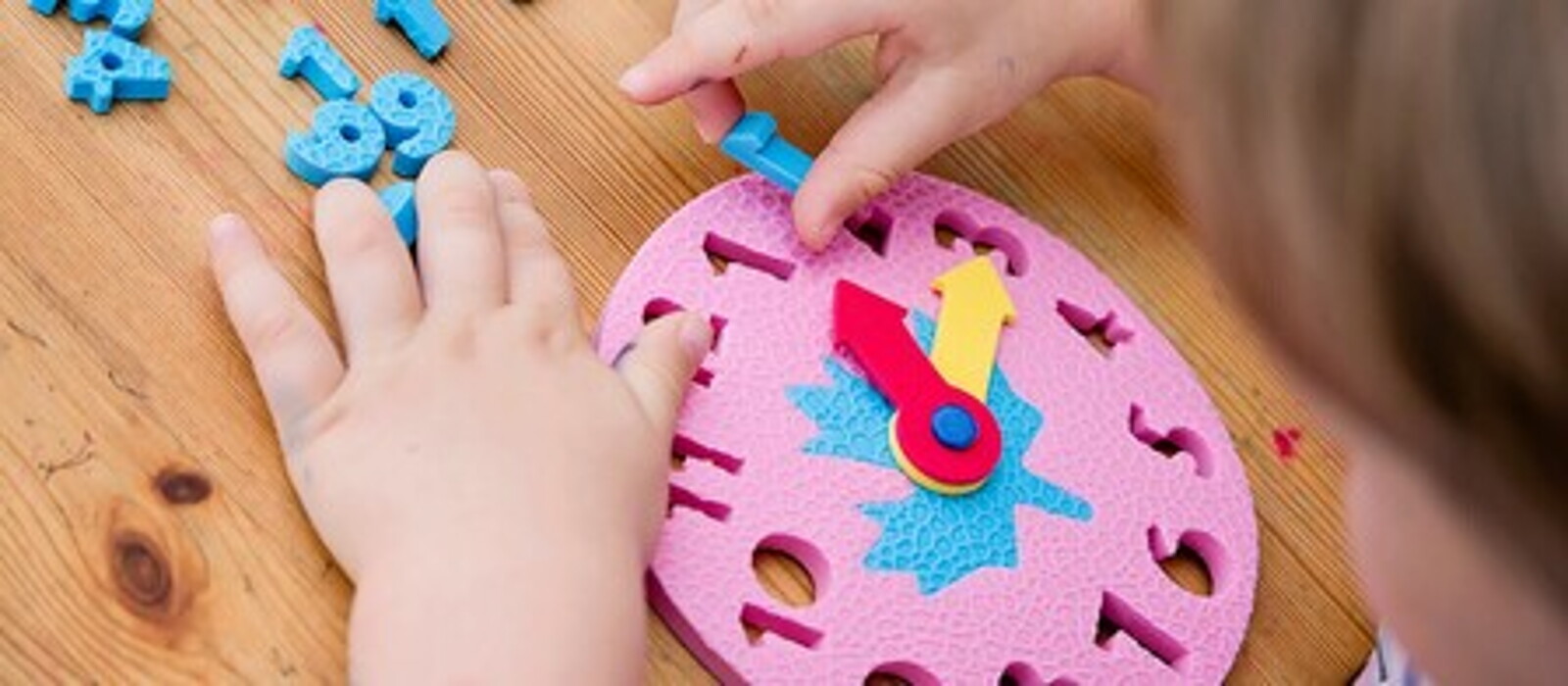Understanding Time
The first time you’ll see that shows you that your child is starting to understand time usually revolves around events, like his birthday or washing his hand before eating.
The first time you’ll see that shows you that your child is starting to understand time usually revolves around events, like his birthday or washing his hand before eating. By being involved with a familiar sequence of routines and schedules, he is enhancing his time awareness, picking up on the past, the present, and the future.
For your pre-schooler, time is still a very abstract concept that is not tangible. Routine and schedules help them feel secure. He can understand the order things are supposed to develop during a day (breakfast, school, snack, outdoor time, bath time, dinner), but if you change the order around, he will get very confused. (TIP: Create a chart of the daily schedule to help them visualize time).
He understands the concept of before and after, which allows him to begin to understand memory and future planning. He also begins to understand that a clock or a watch is a tool to tell time, though he is still unable to understand how they work or to read them. He does love to pretend like he’s reading his toy watch though, and pretty soon he’ll start to understand that when the big hand and the small hand of the clock in the kitchen point up, it’s almost lunch time.
Reference:
http://www.scholastic.com/teachers/article/ages-stages-how-children-develop-sense-time
Share

The Magnificence of a Developing Child
A famous Italian psychologist, Professor Loris Malaguzzi wrote: “It’s necessary that we believe that the child is very intelligent and competent, that the child is strong and beautiful and has very ambitious desires and requests. This is the image of the child that we need to hold.” (Loris Malaguzzi, Reggio Emilia 1993)




